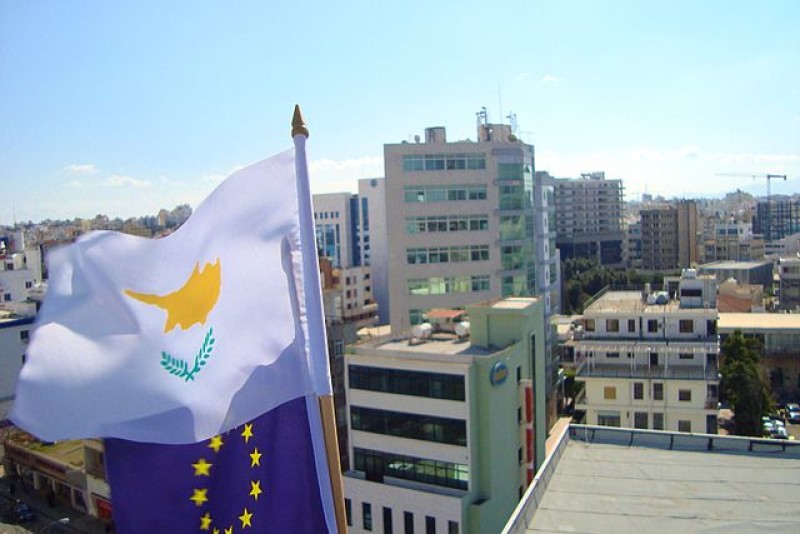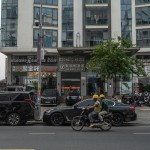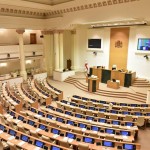Kürşat was extradited from Italy, where he was arrested on New Year’s Eve. He is accused of providing legal counsel to Gary Robb, a British national, who was convicted of fraud in 2011 for selling Greek Cypriot properties to British buyers in the northern part of Cyprus, and in the U.K. in 2015 for embezzlement in connection with the scheme. The court released him on bail after he pledged a 75,000 euros (US$80,685) bond.
The Greek Cypriot owners of those properties were displaced in 1974 by Turkey’s military when it took control of the island’s north in response to a Greek-backed coup aimed at annexing the whole island with Greece. The northern part of the island forms the breakaway Turkish Republic of Northern Cyprus, run by Turkish Cypriots and recognized only by Turkey. Greek Cypriots control the southern part of the island, which is the internationally recognized Republic of Cyprus.
The 1985 constitution of the breakaway Turkish Cypriot part of the island transferred the ownership of Greek Cypriot properties to the state, offering the legal basis for their development and sale in the north. However, their exploitation is considered illegal in the Republic of Cyprus. As a result, Greek Cypriot properties in the north are priced cheaper than originally Turkish Cypriot properties, reflecting their legal uncertainty.
Kürşat, who has Republic of Cyprus citizenship, is the first Turkish Cypriot to be arrested on property appropriation-linked charges, and is being tried at the Nicosia District Court.
Tufan Erhurman, the head of the main Turkish Cypriot opposition Republican Turkish Party, described the charges against the lawyer as “an attempt to gain political advantage over the property issue.” Kürşat’s partner Fazilet Özdenefe is the deputy chairwoman of the Turkish Cypriot assembly and represents the same party.
Greek Cypriots left some 188 thousand hectares of land in Cyprus’s north, compared to some 54 thousand hectares of land left by Turkish Cypriots in the south. Although their ownership rights have been affirmed by the European Court of Human rights, the property question has been one of the most complex and contentious issues in the decades-long effort to find a political solution to the Cyprus problem.
A boom from foreign buyers in recent years in northern Cyprus has been boosted by an influx of Russians since Western sanctions in response to the invasion of Ukraine.
Russian nationals can easily buy property in the northern part of Cyprus, where local banks are not part of the international Swift system and operate via Turkey, which does not enforce Western sanctions on Russia. Some 50,000 Russians were living in the northern part of Cyprus in August 2023, according to Russia’s official news agency Itar Tass, and the Kremlin opened a mobile consular services office in Turkish-controlled Nicosia in September.
According to official figures, in 2021 a total of 1,179 foreigners received permission to purchase property from the council of ministers of the administration in northern Cyprus. That number more than doubled in 2022 to 2,810, and rose to 2,969 in the first eight months of 2023.
Foreign buyers are limited to three properties, and lawyers holding multiple properties through trusts on behalf of wealthy clients is a popular alternative. These properties are not reflected in official statistics, and the figures also exclude purchases by Turkish Cypriot companies with “silent foreign partners.”
The recent flow of money into northern Cyprus through foreign buyers have caused concerns about money laundering through property purchases, regardless of original ownership. Foreign property buyers in the north have included Russian crime lord Victor Panyushyn, fugitive Stanislav Mitrushin, and Australian underworld boss Mark Buddle, according to press reports.
“We have stated many times that property sales boom to foreigners would create problems for us,” Erhurman said on live web TV. “The necessary measures were not taken,” he added.
The Turkish Cypriot administration passed a new anti-money laundering law in December, which included new requirements regarding property sales. Among the new measures, lawyers will have to disclose the beneficial owners of the properties owned by trusts within 30 days, and real estate agents will have to report suspicious transactions.
Greek Cypriot officials have also signaled an increased focus on the issue. In January, the president of the Republic of Cyprus Nikos Christodoulides vowed to clamp down on the sale of Greek Cypriot properties in the north.
“Illegality is illegality, and this effort to bring to justice all those involved in the usurpation of Greek Cypriot properties will not stop under any circumstances,” he said on January 13 according to a statement on the government’s website. Three days later, government spokesman Konstantinos Letymbiotis said that Greek Cypriot authorities were also looking into the involvement of Greek Cypriot entrepreneurs and lawyers.
The Republic of Cyprus issued the warrant for Kürşat in 2007 but renewed his passport seven years later, raising questions about the timing of the New Year’s Eve arrest in Italy. Greek Cypriot police spokesperson Christos Andreou said it's likely that Kürşat avoided detection for so long because his full name on the arrest warrant is spelled in a different way than on the Republic of Cyprus documents issued to him.
The Attorney General of the Republic of Cyprus did not respond to questions. Kürşat’s extradition lawyer Rikkos Mappourides declined to comment on the case.



